Bringing Businesses To Life Through The Lens With Photographer Tia Haygood
A Lifetime passion to enhance visual branding
U.S.-born, Japan-inspired Tia Haygood talks road to success, what inspired her to start photography in Tokyo and why a picture is worth a thousand words.
Creator of TopTia Photography Tia Haygood admits being an unlikely entrepreneur. Having never studied any aspect of business management, the 30-year-old American experienced a bumpy ride when she launched her start-up in 2016. But her cheerful personality and positive, people-orientated outlook soon made up for any lack of business acumen she might have had.
Proactively engaging with the foreign community in Tokyo through non-profit organizations, mentoring groups and local activities is what kept bringing Haygood supporters, fans and clients.
Now, more than two years on, she is traveling not only within Tokyo but also across Chubu and Tohoku to photograph people, business owners, products and events. Her goal is to help companies and individuals enhance their brand by enabling them to put their best foot forward visually.
Savvy Tokyo sat down with Haygood to find out what has kept her going and how an entrepreneur’s dream can become reality.
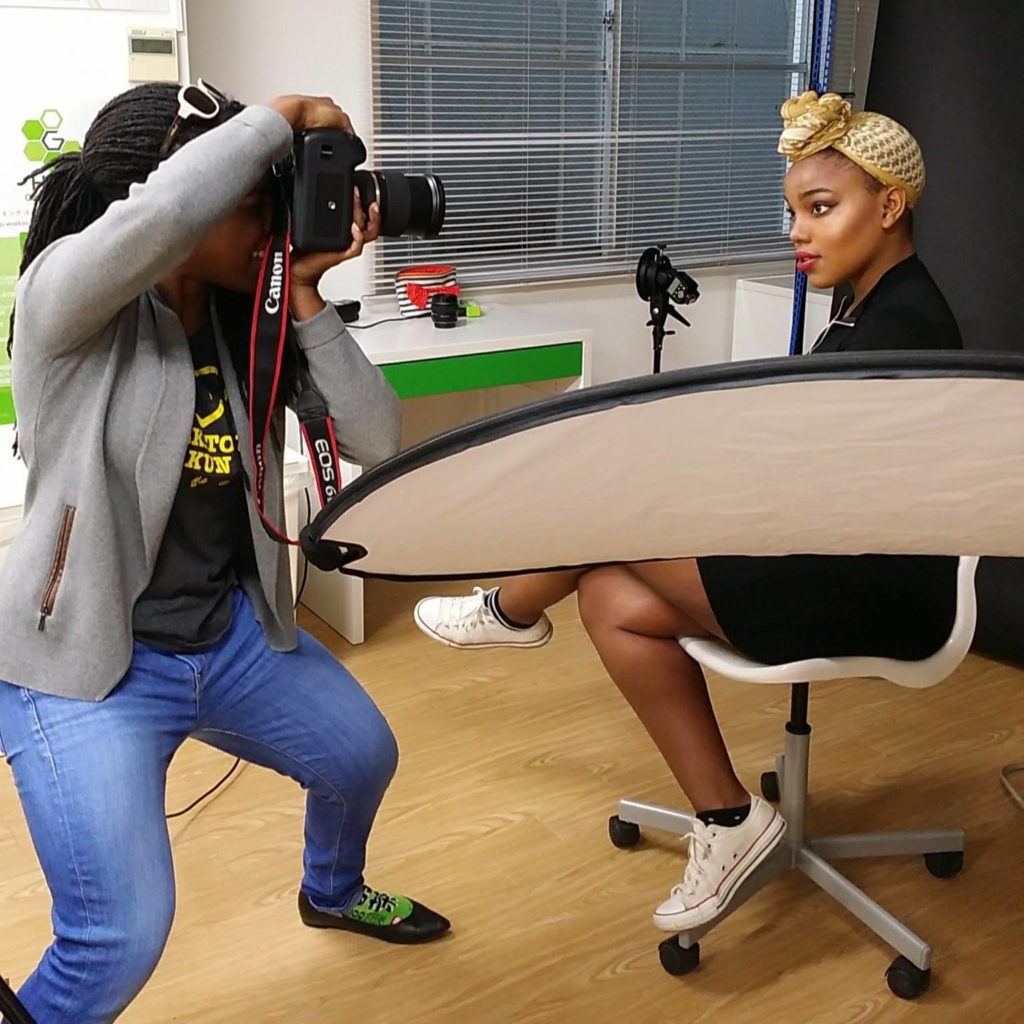
Tia during a photo shoot in Tokyo. Photo by: Robert Millar.
How did you get into photography?
My grandmother was the photographer at family gatherings and I always admired her. When I was 13 I teamed up with her, taking photos at family functions.
At high school, I took courses in photography. I learned to hone my skills and develop my own film in a dark room. I got into digital photography in college, but it was a hobby: a way to document my time at school. The artistic and commercial aspects didn’t blossom until I came to Japan.
What brought you to Japan?
I was 17 when I came for the first time, to study Japanese history. I was so fascinated with the place that I came back while at college, to study the language. After I graduated in 2010, I decided to come back before I entered graduate school, for one last hurrah to get Japan out of my system. But I guess it hasn’t got out of my system yet because I’m still here.
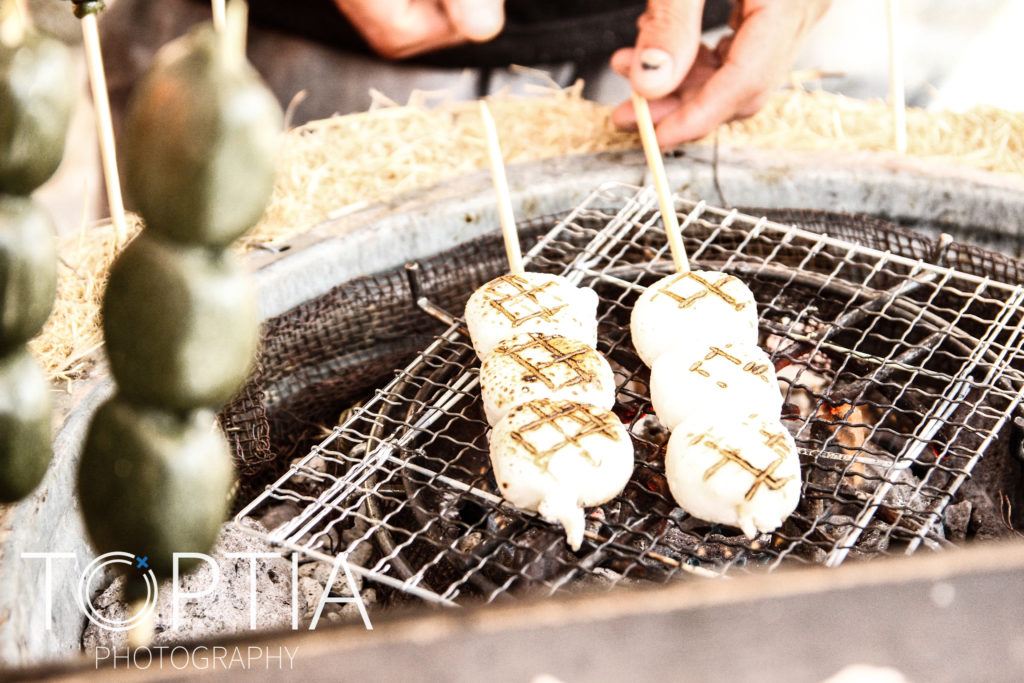
What sparked your photography interest here?
I taught English and some of my adult students would take me out for kaiseki (course) dinners to show their appreciation. I’d never seen food put together with such artistic care, so I started photographing the dishes.
I also traveled around the Kanto and Tohoku areas to photograph their specialty products. I documented my journeys, showing my family back home what Japan life was like. It was a way to express myself and go back to the photography I did when I was younger.
I was at a crossroad: go home or build a business.
At what point did you think you could do it as a career?
I decided to go back to school and invest in a camera and a mentorship program. I started building my skills. I was doing food photography at restaurants. At one gig, I met an entrepreneur called Robert Millar who said my photos were fantastic. That gave me a huge confidence boost; it was proof to me that I was heading in the right direction. Robert encouraged me to make my photography a business. I thought it sounded stressful, trying to build a service that might not even take off.
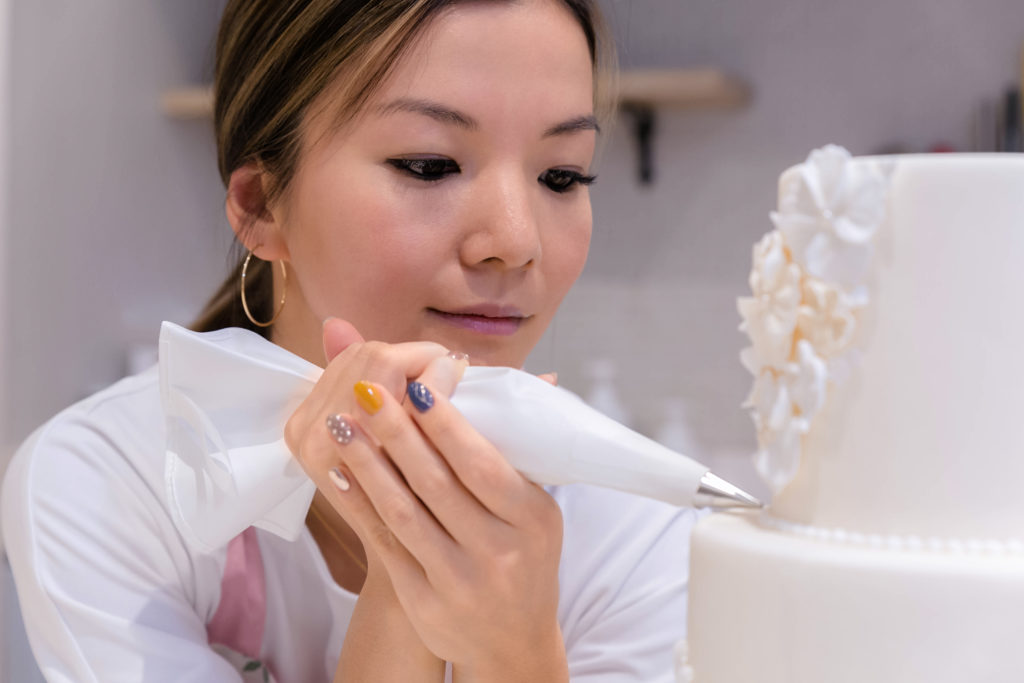 © Photo by TopTia Photography
© Photo by TopTia Photography
But you decided to start TopTia?
In summer 2015, I was at a crossroad: go home or build a business. I decided to quit my job and work on the business for eight months. I registered the business in November and made April 1, 2016 its first day of operations.
What challenges did you face?
The main one was fear. I didn’t know what to expect. The only thing that reassured me was that I could always fly home if the business didn’t work out. The first month of operations was awful. I think I had only three shoots. It worried me; I thought the business wasn’t going to work. I realized that I had to market myself, to go out and make myself known, so I photographed events such as festivals and concerts, which built up recognition of me in the community.
What has kept you going during hard times?
A support network. I was lucky to be part of a group of entrepreneurs called Think Tank; that really inspired me. I saw that my dream was possible, almost as if I got permission to dream—and dream big.
I owe immense gratitude to organizations that I’m part of. FEW Japan has been phenomenal; its members are 30 percent of my clientele. Black Women in Japan has been very supportive. If I am suffering from entrepreneurial blues, its members give me positive vibes.
You have busy months and slow months and you must figure out how to fill the slow months. I do workshops. The last one was how to develop product photos. There are so many women who are “mommy-preneurs,” doing things like selling jewelry or accessories. My plan is to help them brand their work visually.
I realized that I had to market myself, to go out and make myself known, so I photographed events, which built up recognition of me in the community.
What is it like being a foreign female photographer in Japan?
It’s been wholly positive, and I enjoy it, especially when I do portraits. In my experience of shadowing male photographers, I’ve noticed they are very forward in getting the shot; they’re very technically-minded. Though they are seasoned at working with models, they don’t do a lot to keep the lay subject at ease. As a woman, when I work with subjects and need to move them, there is a certain trust awarded me.
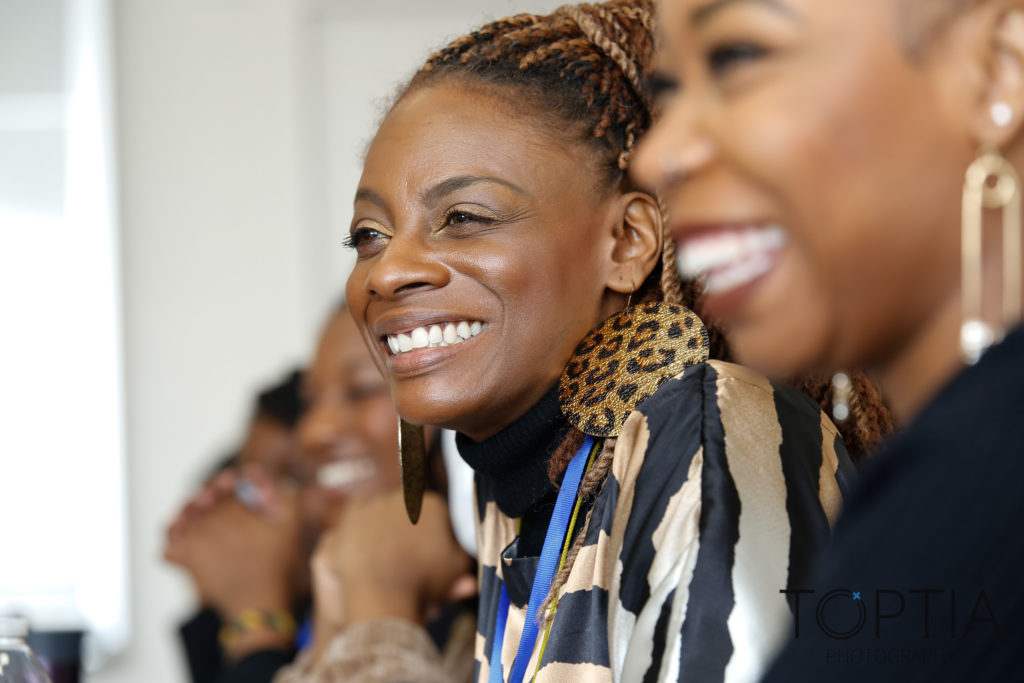
“A natural smile is ten times better than a forced smile.” Tia’s work at the Black Women In Japan Conference 2018. Photo credit: TopTia Photography.
I empathize with people who feel uncomfortable. Even though you’re selling a photo, you’re also selling the experience of being photographed: it must be enjoyable. I try to understand the photo session from the customer’s point of view, to make it fun and create a positive atmosphere. A natural smile is ten times better than a forced smile.
What advice would you give fellow entrepreneurs?
If you’re going to start a business, be serious about it. I’ve seen so many people who love photography try to make a jump from hobby to business. Often they get stopped by the unknown. It’s OK to be afraid, but don’t let it stop you. There are many women’s groups that can give you support. You need to take steps to protect yourself financially and emotionally, but you also need somebody to help you get excited about your dream and stop you from keeping it in a box and saying, ‘One day…’.
What are your long-term plans?
I think I would like to go back to where it all started and do food photography — I’m a big foodie. My perfect day would be to go to a restaurant or someone’s house and photograph the food, emotion and mood. The artistic side of my photography is food.
What do you do in your spare time?
I ride along the Tama River. I love to read via my audible app, for both business and leisure. I’m now listening to a 19-hour food world history course. It’s got me even more excited about the delights of cuisine.
Do you have work-life balance?
It’s a struggle. My nights are up in the air because I’m working at events so, as best as I can, I keep a schedule in the mornings. When I wake up, I take care of me first. If I do that, I’m in the right mindset and can go about the rest of my day.
To learn more about Tia’s business, visit her official website here.
Savvy Spotlight is a monthly feature introducing foreign and Japanese women at the frontline of what’s successful, contributing, cool, unique and interesting in the city. If you have anyone in mind you would like us to interview, leave us a comment below with your recommendations!












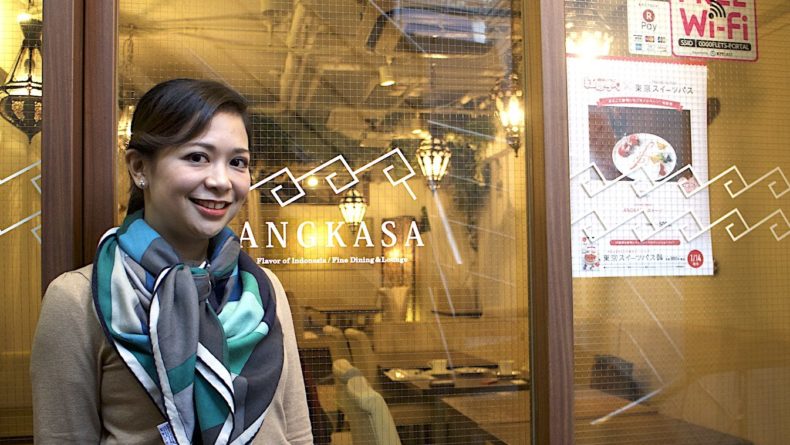
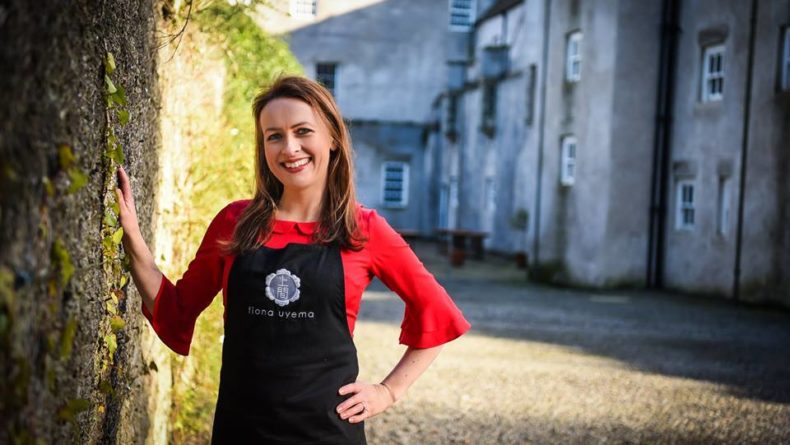
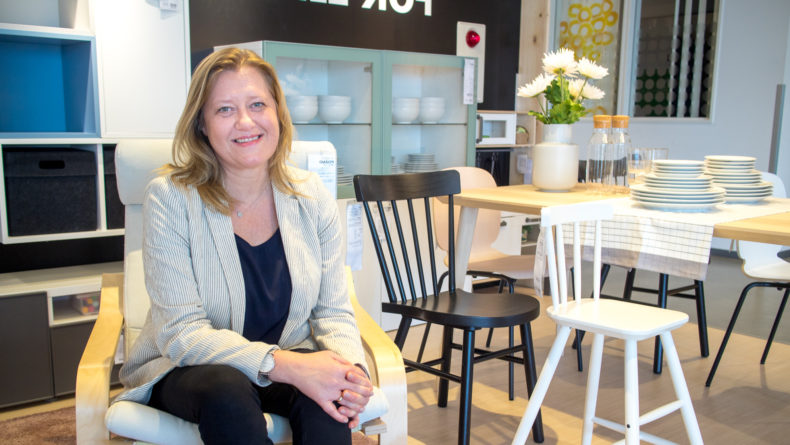
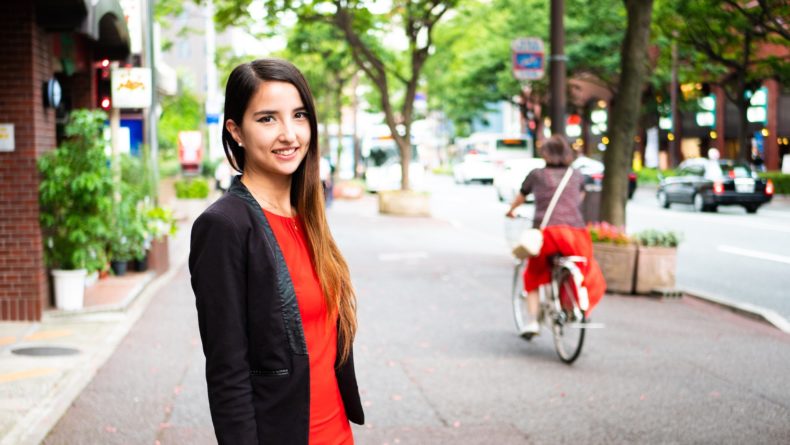
Leave a Reply